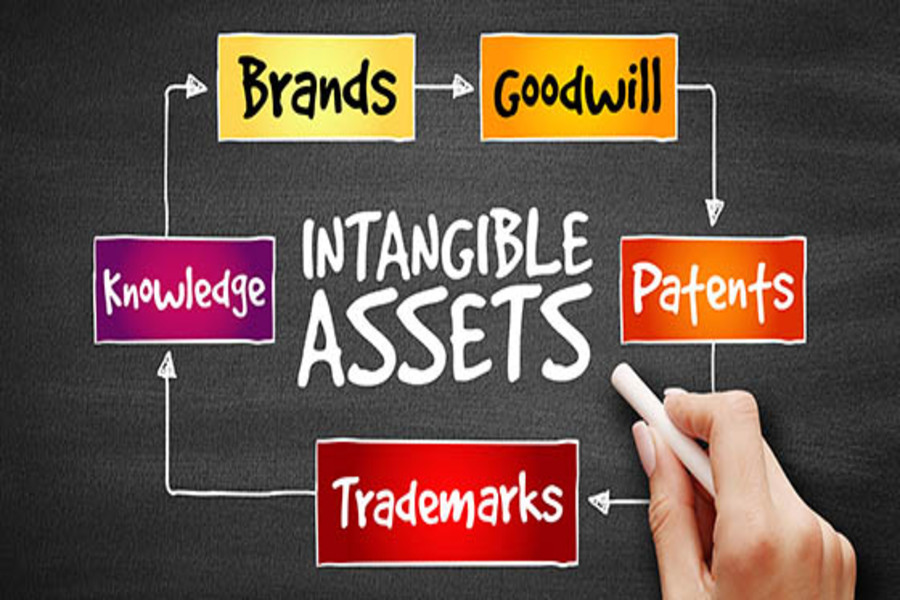If you’re getting a divorce, you know the process is generally filled with stress. But if you’re a business owner, tax issues can complicate matters even more. Your business ownership interest is one of your biggest personal assets and in many cases, your marital property will include all or part of it. Transferring property tax-free In general, you can divide most assets, including cash and business ownership interests, between you and your soon-to-be ex-spouse without any federal income or gift tax consequences. When an asset falls under this tax-free transfer rule, the spouse who receives the asset takes over its existing tax basis (for tax gain or loss purposes) and its existing holding period (for short-term or long-term holding period purposes). For example, let’s say that under the...

If your employer provides life insurance, you probably find it to be a desirable fringe benefit. However, if group term life insurance is part of your benefits package, and the coverage is higher than $50,000, there may be undesirable income tax implications. You’re taxed on income you didn’t receive The first $50,000 of group term life insurance coverage that your employer provides is excluded from taxable income and doesn’t add anything to your income tax bill. But the employer-paid cost of group term coverage in excess of $50,000 is taxable income to you. It’s included in the taxable wages reported on your Form W-2 — even though you never actually receive it. In other words, it’s “phantom income.” What’s worse, the cost of group term insurance must be...
Let’s say you decide to, or are asked to, guarantee a loan to your corporation. Before agreeing to act as a guarantor, endorser or indemnitor of a debt obligation of your closely held corporation, be aware of the possible tax implications. If your corporation defaults on the loan and you’re required to pay principal or interest under the guarantee agreement, you don’t want to be caught unaware. A business bad debt If you’re compelled to make good on the obligation, the payment of principal or interest in discharge of the obligation generally results in a bad debt deduction. This may be either a business or a non-business bad debt deduction. If it’s a business bad debt, it’s deductible against ordinary income. A business bad debt can be...
Intangible assets — such as patents, copyrights, trademarks and customer lists — can have substantial value. But, unless they’re purchased from a third-party, you might not know what they’re currently worth. For example, if a business cultivates a well-known brand over several years using internal resources, it won’t appear on its balance sheet. Owners of intangibles need to know the value of these assets in various situations. For example, the value of intangible assets may be relevant when buying or selling a business, reporting acquired intangibles under U.S. Generally Accepted Accounting Principles (GAAP), licensing rights to or joint venturing with a third party, and litigating asset infringement or breach claims. The value of intangibles also can be important in matters such as divorce settlements and estate...
If you have family members with disabilities, there may be a tax-advantaged way to save for their needs — without having them lose eligibility for the government benefits to which they’re entitled. It can be done though an Achieving a Better Life Experience (ABLE) account, which is a tax-free account that can be used for disability-related expenses. The SECURE 2.0 law made changes that will allow more people to be eligible for these accounts, beginning in 2026. Eligibility rules ABLE accounts can be created by eligible individuals to support themselves, by family members to support their dependents, or by guardians for the benefit of the individuals for whom they’re responsible. Anyone can contribute to an ABLE account. While contributions aren’t tax-deductible, the funds in the account are...
When it comes to fraud, it may seem there’s nothing new under the sun. Unfortunately, fraud perpetrators are always finding novel ways to swindle businesses. Here are some recent scams — and how your business can protect against them. Influencer shakedowns Scam: So-called social media influencers ask restaurants and bars for complimentary meals and drinks in exchange for “free” publicity on platforms such as TikTok and Instagram. Some less-ethical influencers rack up big bills and fail to post anything about the businesses. Others accept money for “exposure packages” (to place a certain number of posts on various platforms) and then never deliver. Solution: If an influencer approaches you for a comp meal (or other free products or services), verify that the influencer has the number of followers claimed...
The SECURE 2.0 law, which was enacted last year, contains wide-ranging changes to retirement plans. One provision in the law is that eligible employers will soon be able to provide more help to staff members facing emergencies. This will be done through what the law calls “pension-linked emergency savings accounts.” Effective for plan years beginning January 1, 2024, SECURE 2.0 permits a plan sponsor to amend its 401(k), 403(b) or government 457(b) plan to offer emergency savings accounts that are connected to the plan. Basic distribution rules If a retirement plan participant withdraws money from an employer plan before reaching age 59½, a 10% additional tax or penalty generally applies unless an exception exists. This is on top of the ordinary tax that may be due. The goal of...
The federal student loan “pause” came to an end on August 31 after more than three years. If you have student loan debt, you may wonder whether you can deduct the interest you pay on your tax return. The answer may be yes, subject to certain limits. The deduction is phased out if your adjusted gross income exceeds certain levels — and they aren’t as high as the income levels for many other deductions. Deduction basics If you’re eligible, the maximum amount of student loan interest you can deduct each year is $2,500. The interest must be for a “qualified education loan,” which means a debt incurred to pay tuition, room and board, and related expenses to attend a post-high school educational institution, including certain vocational schools....
Does your business receive large amounts of cash or cash equivalents? If so, you’re generally required to report these transactions to the IRS — and not just on your tax return. The requirements Each person who, in the course of operating a trade or business, receives more than $10,000 in cash in one transaction (or two or more related transactions), must file Form 8300. Who is a “person”? It can be an individual, company, corporation, partnership, association, trust or estate. What are considered “related transactions”? Any transactions conducted in a 24-hour period. Transactions can also be considered related even if they occur over a period of more than 24 hours if the recipient knows, or has reason to know, that each transaction is one of a series...
Most people equate business bankruptcy with liquidating a company’s assets and using the proceeds to repay creditors. That’s a Chapter 7 filing under the U.S. Bankruptcy Code, but closing shop isn’t a foregone conclusion in bankruptcy. Many companies instead file for Chapter 11 (reorganization) bankruptcy. This option allows a company to continue to operate, with the hope of turning things around. In the first half of 2023, both types of business bankruptcy filings surged in the United States. In particular, Chapter 11 filings were up 68% from the same period last year, according to Epiq Bankruptcy, a provider of bankruptcy statistics. This figure reflects only businesses involved in formal bankruptcy proceedings; many others are involved in informal, out-of-court reorganizations. Here are ways business valuation professionals can...
- 1
- 2
- 3
- 4
- 5
- 6
- 7
- 8
- 9
- 10
- 11
- 12
- 13
- 14
- 15
- 16
- 17
- 18
- 19
- 20
- 21
- 22
- 23
- 24
- 25
- 26
- 27
- 28
- 29
- 30
- 31
- 32
- 33
- 34
- 35
- 36
- 37
- 38
- 39
- 40
- 41
- 42
- 43
- 44
- 45
- 46
- 47
- 48
- 49
- 50
- 51
- 52
- 53
- 54
- 55
- 56
- 57
- 58
- 59
- 60
- 61
- 62
- 63
- 64
- 65
- 66
- 67
- 68
- 69
- 70
- 71
- 72
- 73
- 74
- 75
- 76
- 77
- 78
- 79
- 80
- 81
- 82
- 83
- 84
- 85
- 86
- 87
- 88
- 89
- 90
- 91
- 92
- 93
- 94
- 95
- 96
- 97
- 98
- 99
- 100
- 101
- 102
- 103
- 104
- 105
- 106
- 107
- 108
- 109
- 110
- 111
- 112
- 113
- 114
- 115
- 116
- 117
- 118
- 119
- 120
- 121
- 122
- 123
- 124
- 125
- 126
- 127
- 128
- 129
- 130
- 131
- 132
- 133
- 134
- 135
- 136











